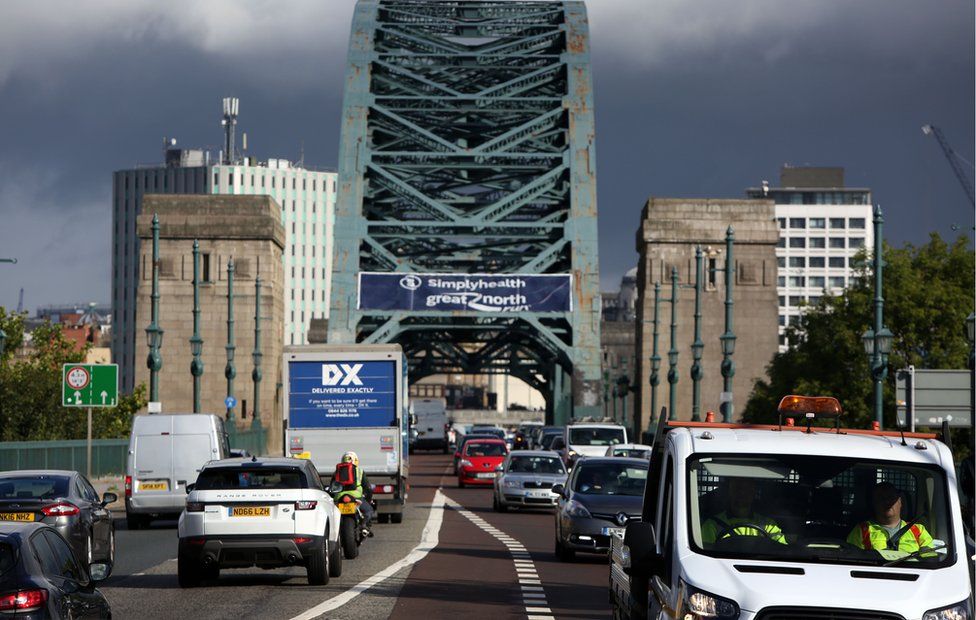Tyneside pollution charging 'would not reduce emissions'
- Published

Charges for high-polluting vehicles would not sufficiently reduce emissions levels, three councils have concluded.
Newcastle, Gateshead and North Tyneside authorities said even imposing the highest toll on the worst vehicles would not lower traffic levels enough.
The government has instructed councils to improve air quality by 2021.
But Newcastle City Council leader Nick Forbes said charges would be "profoundly damaging" for the poorest communities.
A Clean Air Zone would "penalise" motorists and "increase inequalities by forcing people on low incomes to pay huge amounts of money", he said.
The Department for Environment, Food and Rural Affairs said "urgent collective action" was needed and it was working with councils to improve local air quality.
Local authorities had been given nearly £500m for improvements but were "best placed to decide how to tackle air quality in their communities", a spokesperson said.
The Tyneside councils say studies show even the most stringent option - charging the highest-polluting cars and taxis £12.50 per day and buses, coaches and lorries £50 - would not bring nitrogen dioxide levels within legal limits.
Only diesel cars made pre-September 2015 and petrol cars made before January 2006 would be affected.
Instead the councils wantsto explore other options including public transport and cycling improvements, a diesel car scrappage scheme and tax breaks for electric vehicles.
Newcastle Liberal Democrat spokesman Greg Stone said other cities were dealing with the same challenges and "not making excuses".
The councils should expand park and ride provision, ban HGVs from city centres and switch to low emission buses and taxis, he said.
Taxi drivers said charges would result in fare rises and public transport users argued any toll must be imposed on cars as well as buses.
Councils will submit proposals to the government in February, which would then be subject to public consultation, the Local Democracy Reporting Service said.
- Published27 June 2018
- Published11 October 2018
- Published5 December 2017
- Published18 January 2016
- Published17 December 2015